- Home
- Lindsay McKenna
Beginning with You
Beginning with You Read online
Beginning with You
Lindsay McKenna
Dedicated to serving the public when emergency strikes, never hesitating to risk their own lives in heart-racing rescue missions, Search and Rescue is an elite corps of helicopter pilots of the United States Coast Guard. Joining their ranks is proud and beautiful Rook Caldwell, a woman who audaciously breaks her way into a close-knit, all-male preserve that jealously guards its privileges against all intruders.
Rook hopes to make the Coast Guard her future as well as her family. Soon, however, she must not only fight to win the respect of her fellow flyers, but come to grips with her unexpected feelings for Jim Barton, a wealthy businessman whose brilliant smile disarms her and makes her fear for her heart. To allow their growing intimacy to triumph as it should, to realize all she has sought so hard to achieve as a pilot, Rook will need both a woman’s strength—and a woman’s tenderness.
To Captain Roland “Bud” Breault, USCG—teacher, mentor, and friend. Without your generosity, and that of the Coast Guard personnel you allow me to interview, this book could not have been written. My thanks and salute to all of you for sharing your experiences with me.
and
To the unsung heroines and heroes who wear the U.S. Coast Guard uniform daily on our behalf. Thank you.
and
To Kathryn Falk, Carol Stacy, and my editor, Beth Lieberman.
Contents
Chapter One
Chapter Two
Chapter Three
Chapter Four
Chapter Five
Chapter Six
Chapter Seven
Chapter Eight
Chapter Nine
Chapter Ten
Chapter Eleven
Chapter Twelve
Chapter Thirteen
Chapter Fourteen
Chapter Fifteen
Chapter Sixteen
Chapter Seventeen
Chapter Eighteen
Chapter Nineteen
Chapter Twenty
Chapter Twenty-one
Chapter Twenty-two
Chapter Twenty-three
Chapter Twenty-four
Also by Lindsay McKenna
About the Author
Excerpt from Down Range
Chapter One
Lieutenant Rook Caldwell was pleased with her decision. The primal forest beauty of Route 101, heading north to Port Angeles, was healing some of her tension. She had decided to drive her red Honda Civic up the coast of Washington, coming in the back door via the Olympic National Park.
Today was April second. Tomorrow she was to report to her first Coast Guard station as a helicopter pilot—one of only a few women in that particular arm of the service to fly Search and Rescue aircraft. Her stomach rolled—butterflies. Would she ever outgrow them? At twenty-five, she should have been rid of them forever. A silly smile touched her lips, and she glanced into her rearview mirror out of habit. She was on the final, gentle grade that would lead her into the seaport of Port Angeles. A number of timber trucks had already whizzed by her. Another one, its grille gussied up with highly polished chrome, was stalking her. Let him pass, she thought.
The FM music was a perfect background for the mountains that rose on either side of the two-lane highway. Douglas fir, western white pine, and alpine and balsam firs covered the slopes. This was heavy timber country, and both man and machine had left scars. There was something sacrilegious about that, Rook decided. The lower slopes were scraped naked of trees and looked as if they’d never recover.
Rook’s gray eyes darkened with the pain of memories. Men meant pain, separation and anger. Her full lips tightened as she thought of the years she and her mother had been hounded by her father’s vindictive detectives. She hated Jack Caldwell and everyone in his family. Noah was no longer a brother to her, just a faint memory. He had volunteered to go back East with Jack after the contentious divorce. Her stepmother, May Caldwell, was the daughter of a U.S. senator and had tried to make Rook “mind her manners.”
A devil-may-care smile came to Rook’s mouth. May had called her a “wild little animal.” When cornered, Rook would rebel, regardless of the abuse Jack meted out, because of her stubborn refusal to change. May wanted her to wear dresses, not jeans. She wanted Rook’s shining black cap of hair to grow so that she looked less like a boy. And makeup! May had tried to get her to wear perfume, lipstick and a bit of blusher over her high cheekbones. Rook could almost look back on those rare “visits” to the Georgetown house with humor. She would let the detectives take her back, stay a week—maybe two, at the most—and then sneak out a window, fade into the dark of night and make her way back to Texas and her mother, whom she loved fiercely.
Mom…too bad you didn’t live to see me graduate with honors from Pensacola. You’d have been proud of me….
Tears blurred Rook’s vision for a moment until, with a sigh of frustration, she wiped her eyes.
The deafening blast of an air horn filled the sports car. Rook instinctively cringed, glancing into her rearview mirror. Her heart thudded heavily in her breast. The timber truck with the fancy grillwork was careening down on her. She glanced at her speedometer, which read sixty miles per hour, then up at a sign just ahead that said 45 mph. They were getting ready to enter the outskirts of Port Angeles.
Again, the air horn blasted—frantically, now. Rook refused to speed up. Ahead, she could see another timber truck laboring slowly up the hill, making it impossible for the one behind her to pass. Tough, he can put on the brakes and slow down, then. Just like a man, she fumed, to push something smaller and weaker than himself around.
The grille loomed in her mirror. Rook watched, mesmerized, as the hurtling truck continued to bear down on her. Was he going to bully her off the highway just because he was in a hurry? The air horn sounded again and again. Rook tightened her hands around the wheel. All right, big boy, you’re not going to get away with this. She lightly touched the brakes in warning. Again, the air horn bellowed and the grille inched closer.
They passed the 45 mph sign, and the grade became steeper. To her left, Rook could see the dark blue Straits of Juan de Fuca. To her right, she caught her first glimpse of the fish and timber town of Port Angeles. Disbelief ballooned in her as the timber truck moved within a foot of her bumper. One part of her wanted to slam on the brakes and make the bastard hit her. Another part of her—the mature one—decided evasive action was the better part of valor.
Rook was totally unprepared when the bumper of the truck solidly struck her Civic. The rear window shattered, sending a shower of glass across her shoulder. The air horn thundered. The vehicle was being pushed along by the truck! Rook pressed her foot down on the accelerator, and the needle shot up to seventy-five. The shoulder was muddy and rocky. She had no choice; it was either try for it and let him by, or end up flying into Port Angeles as the hood ornament on the timber truck. What a hell of a welcome to her new home!
Her reflexes were fast. She knew her Civic as intimately as she knew the helos she’d flown the last eight years of her life. Whipping the sports car onto the three-foot-wide muddy shoulder, Rook downshifted to fourth, then third, not touching the brake. The timber truck careened by, missing her slewing car by fractions of an inch. The mud was thick on the shoulder, and the wheels on the passenger side dug in. The car was headed toward the high wall of the rocky bank; she turned the wheel fractionally to the left, and it steadied momentarily. Rock and soil flew in all directions, and smacked and grated along the belly of the vehicle. Her car would be scratched, and the oil pan would probably be torn off because she was sinking so deeply into the mire.
Despite all her efforts to maneuver the car to a safe stop, Rook had managed to memorize the license plate o
n the truck as it had sailed by, disappearing around a long curve at high speed. “Easy, easy,” she crooned to the car, gently bringing it to a halt. Silence suddenly surrounded her. Her hands were white-knuckled on the steering wheel, and her breath was coming in sobs. Gradually, she released her grip, sinking back against the seat. She had almost been killed. What if she hadn’t had the skill to stop the car? Thank God for seat belts.
Rook opened her eyes, now a stormy gray with shock. “I’ll find him,” she muttered. Checking for traffic, she eased the muddied and scraped sports car back onto the highway. Shifting rapidly, she roared down the road, through a series of snaking curves that finally shallowed out into a flat half mile of road. Rook spotted the timber truck, now halted alongside the road not far from the T-intersection and stop sign. She saw the driver get out of the cab and walk past the load of timber chained to his truck.
Rook pulled up directly behind the vehicle. The driver quickened his pace toward her, relief etched in his features. Jerking the door open, she leaped out and walked rapidly toward him.
“Hey! You, there! Just who do you think you are, bullying a small car off the road?” Rook tried to take the anger out of her voice. After years of working around men, she knew from experience that a low tone of voice and reasonableness were better than sharp words.
Jim Barton girded himself when he heard the woman angrily shouting at him. He stared down into her eyes, which were narrowed with silvered anxiety. Barton glanced beyond her to the battered red Civic. Immediately, he became apologetic. “Hey, look, I tried to warn you. Didn’t you hear me on that air horn?”
Rook hated having to lift her head to look up into his face.
She planted her fists on her hips, because her hands were shaking, forced into standing her ground with the driver. “Sure, I heard your air horn! How could I miss it when you drove through my rear window? You almost killed me back there! And my car—”
“I’ll pay for any damages, lady.” Christ, she was madder than a wet hen. Jim almost smiled, but the situation was too serious. In her own way, she was attractive. He liked her oval face—her stubborn chin, those petulant, full lips, and her large gray eyes. She wore a plain white blouse and a pair of well-worn jeans that showed off her long legs to a decided advantage. And there was no ring on her left hand. He hadn’t seen her around here—she was probably just another tourist.
“I’d hope so, mister,” she gritted out. When Rook saw the expression lighten his dark blue eyes, it shattered her attempt to recapture her anger. “You think this is funny? If I hadn’t had the reflexes I’ve got, I’d have plowed into that rock bank! But you don’t care, do you?”
“Hey, wait! My brakes failed! If I could’ve stopped, I would’ve.”
Rook stared at him, disbelief etched into her face. “Sure they did!” Oh, why was she being antagonistic? This just wasn’t like her. Rook wrestled mightily with her shaken emotions.
Anger tinged his amusement. “I don’t make a habit of tapping people’s cars for the hell of it.”
“Tapping?” She pointed toward her car. “That’s hardly a tap you gave me! My window’s busted and the entire trunk and bumper are caved in.”
Nostrils flaring, Jim held out both muddy hands. “Look, I told you the truth. My brakes gave way. Now, if you don’t believe me, you can climb under the truck and take a look for yourself.”
Rook was trembling visibly and she didn’t want him to see it. She used his invitation as an excuse to move away from him. Her nerves were unraveling. “I’ll do just that.”
She walked quickly to the rear of the eighteen-wheeler, got down on her hands and knees and crawled beneath it.
Nonplussed, Jim watched her. “Why, you little hellcat,” he muttered, and then went to join her.
Glancing over at him when he crawled up beside her, Rook continued to examine the brake area. She reached up.
“Don’t!”
Shaken when his large hand clamped around her wrist, Rook jerked away from him.
Barton bit back a curse. “Just for your information those brakes are hotter than hell. They’ll burn your hand.”
“If they’re not working, you’re right. But I don’t trust you enough to take your word. I’ll find out for myself.” Rook leaned up, placing the back of her hand close enough to find out. They were hot. She could smell the odor of burned, tortured metal. She wrinkled her nose. Meeting his dark look, she muttered, “You got any more brake equipment on this rig?”
“Yeah, under the hood. I suppose you want to look at it, too?” It was almost on the tip of his tongue to ask her if she was a mechanic, but he didn’t.
“No.” Rook crawled out, wiping her hands across her thighs. She walked around the truck. All her anger turned into admiration. He’d had the good sense to use the rocky shoulder and steep bank as a brake, maneuvering his truck into it. A lesser driver would have flipped the loaded truck once it sloughed into the foot-deep mud. The entire right side of his rig had been badly damaged.
Rook felt him come up behind her and stepped away. There was something disturbing about him. She didn’t trust him. Maybe it was his rugged good looks. He appeared to be around thirty, his hair a dark brown with red highlights, tousled by the inconstant breeze. He was wearing a faded red-and-black checked flannel shirt, a pair of jeans and rough-cut boots. His denim jacket emphasized the breadth of his shoulders and his masculinity.
“Now I don’t feel so bad,” she whispered, trying somehow to apologize for her over-emotional reaction to the accident. “You beat up your truck worse than my Civic.”
“Yeah, and it will cost a hell of a lot more to repair it, too. Look, just give me your name and an address where I can reach you. I’ll have our insurance company contact you to fix the damage to that car of yours.”
Rook bristled, but kept her irritation under control. The rush of adrenaline had caused her initial display of feelings. She walked back to her car and grabbed her purse. Disliking him for the way he was affecting her, Rook leaned against the fender of her car, retrieving a pad and pencil. She scribbled down her name, email and the U.S. Coast Guard station address, then ripped off the paper and handed it to him. His hand was large, and his fingers were blunt, with a number of scars across the hairy tops of them.
“Give me your info, please. And I want some proof of identity.”
Jim wiped off his hand, then dug in his back pocket for his wallet. “Trusting creature, aren’t you?”
“Of you, in particular,” Rook took the proffered license and wrote down his name. Finally, her voice was normal: low and calm.
“Sounds like you think men are little more than a virus.”
Rook couldn’t ignore the amusement in his baritone voice, relaxing slightly. “What I think is of little concern to you, Mr. Barton. Who do you work for?”
He dug out a business card and handed it to her, enjoying her reaction as she read it. “My father and I own Barton Industries, Miss—” he looked down at her name.
“It’s Ms., Mr. Barton. And the last name is Caldwell.” She wrote down the rest of the information and handed his credentials back to him.
Jim settled the billfold into his rear pocket and glanced at the paper she had given him. He cocked his head. “The Coast Guard station? Is that where you work?”
“It will be as of tomorrow, Mr. Barton. You can contact the personnel officer over there when you want to get in touch with me. He or she will know where I’ll be assigned.”
The redneck probably thought she was a secretary. Let him. Rook closed the notepad and stuffed it back into her purse, then pushed off from the fender to leave.
“Hey…”
She stiffened when his hand went around her upper arm and drew her to a halt. Rook turned, barely tolerating his grip. “What is it now?”
“We got tangled up in conversation over the brake situation. Are you okay? Any injury?”
If she didn’t know his type, Rook would swear that the concern in Barton’s voice and fa
ce were genuine. She shrugged it off, realizing he was asking from a business standpoint. If she were injured, she could sue the hell out of his timber company. “Don’t worry, Mr. Barton, no whiplash. I came unglued after the emergency situation, but I’m fine now.” She pulled her arm free of his restraining hand.
He stood there, watching her slip back into the car. Tongue of a viper, eyes of a dove. What a combination. Defensive, too. Jim scratched his head and waited to see if her car would start. Looking down at the paper, he noticed her letters were painfully clean and precise. But those eyes and that mouth of hers shouted of something else—something far more interesting, that he wanted to investigate. Well, Ms. Caldwell, in a few days, you and I are going to meet again. Next time, we’ll see who gets the upper hand….
He didn’t have to wait those few days. Jim heard the engine grind. Seeing the frustration in her face he girded himself for another round, then ambled up to the car and leaned down, placing his hands on the door.
“Won’t start?”
Rook gave him a distraught look. She wanted to cry, but hid the reaction.
A bit of a grin edged his mouth. He quickly swallowed it, struggling hard to remain somber about her predicament. The gods were with him. Maybe…if only he could get her to climb down off her high horse. She was as touchy as an old brood hen sitting on a clutch of eggs.
“Want me to try it?”
That did it! Rook, staring straight ahead, fists wrapped tight around the steering wheel, struggling to remain composed. “No, I don’t want you to try it.”
Rook didn’t need any of this—especially such a smart-aleck trucker. He was laughing at her; she could feel it. “Just because I’m a woman, I don’t know how to start this car. Is that it?”
“No way, Ms. Caldwell. I’d never say that about you.”
I’ll bet you wouldn’t, she thought to herself.
“Want me to look under the hood?” Jim offered.
“No,” she sighed. Why wouldn’t he just go away? There was something about him that stripped her, made her feel vulnerable. That was something Rook had never felt around a man before—ever.

 Wind River Undercover
Wind River Undercover Wind River Protector
Wind River Protector Lord of Shadowhawk
Lord of Shadowhawk Sanctuary: Delos Series, Book 9
Sanctuary: Delos Series, Book 9 Home to Wind River
Home to Wind River Secret Dream: Delos Series, 1B1
Secret Dream: Delos Series, 1B1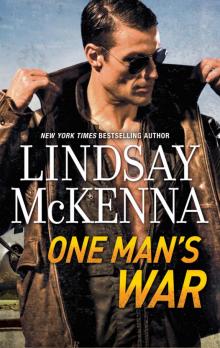 One Man's War
One Man's War Unbound Pursuit
Unbound Pursuit The Defender
The Defender Operation: Forbidden
Operation: Forbidden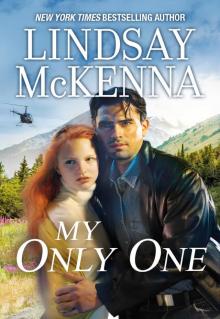 My Only One
My Only One Dangerous: Delos Series, Book 10
Dangerous: Delos Series, Book 10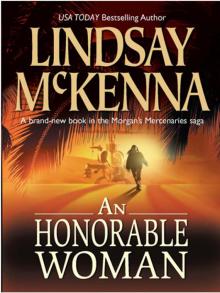 An Honorable Woman
An Honorable Woman Deadly Silence
Deadly Silence Morgan's Son
Morgan's Son Taking A Chance_Delos Series_Book 7B1
Taking A Chance_Delos Series_Book 7B1 Danger Close (Shadow Warriors)
Danger Close (Shadow Warriors) Solitaire
Solitaire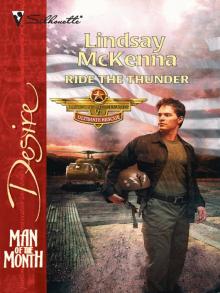 Ride the Thunder
Ride the Thunder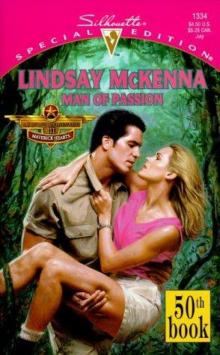 Man of Passion
Man of Passion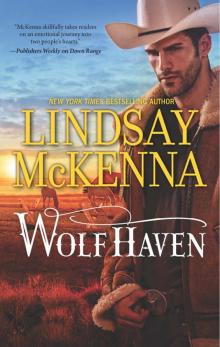 Wolf Haven (The Wyoming Series Book 9)
Wolf Haven (The Wyoming Series Book 9) Morgan’s Mercenaries: Heart of the Jaguar
Morgan’s Mercenaries: Heart of the Jaguar A Question of Honor
A Question of Honor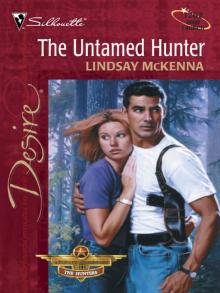 The Untamed Hunter
The Untamed Hunter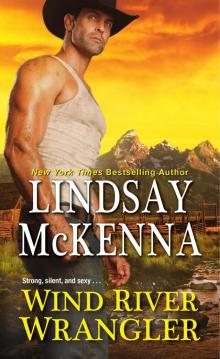 Wind River Wrangler
Wind River Wrangler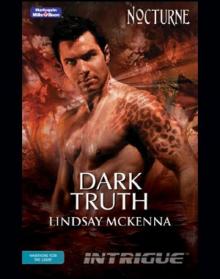 Dark Truth
Dark Truth Christmas Angel
Christmas Angel Broken Dreams (Delos Series Book 4)
Broken Dreams (Delos Series Book 4)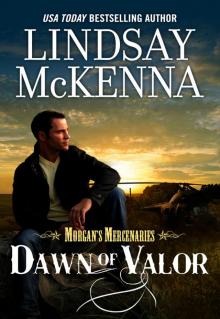 Dawn of Valor
Dawn of Valor Hold Me: Delos Series, 5B1
Hold Me: Delos Series, 5B1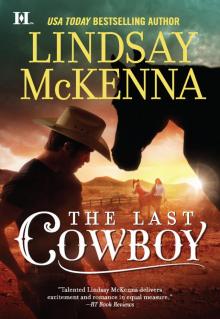 The Last Cowboy
The Last Cowboy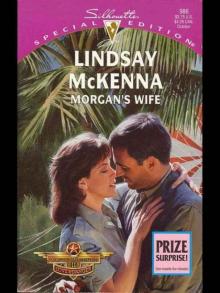 Morgan's Wife
Morgan's Wife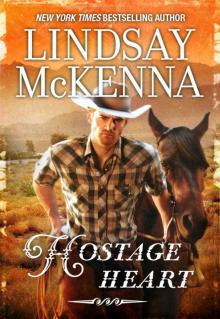 Hostage Heart
Hostage Heart Heart of the Hunter
Heart of the Hunter Hold On (Delos Series Book 5)
Hold On (Delos Series Book 5) Snowflake's Gift (Delos Series Book 6)
Snowflake's Gift (Delos Series Book 6)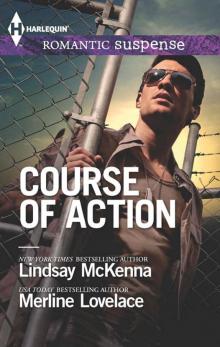 Course of Action: Out of Harm's WayAny Time, Any Place
Course of Action: Out of Harm's WayAny Time, Any Place Morgan's Mercenaries: Heart Of The Warrior
Morgan's Mercenaries: Heart Of The Warrior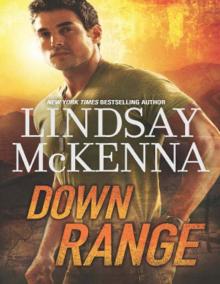 Down Range (Mills & Boon M&B) (Shadow Warriors - Book 2)
Down Range (Mills & Boon M&B) (Shadow Warriors - Book 2) A Chance Encounter
A Chance Encounter Out Rider
Out Rider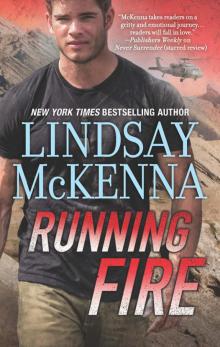 Running Fire
Running Fire No Surrender
No Surrender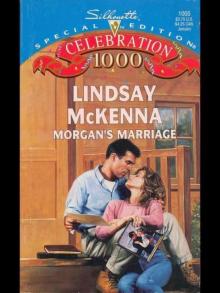 Morgan's Marriage
Morgan's Marriage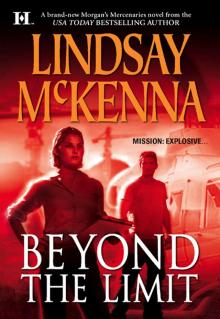 Beyond The Limit
Beyond The Limit Enemy Mine
Enemy Mine The Gauntlet
The Gauntlet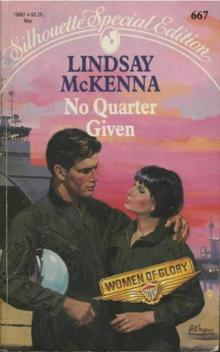 No Quarter Given (SSE 667)
No Quarter Given (SSE 667) Chase the Clouds
Chase the Clouds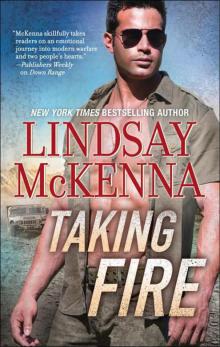 Taking Fire
Taking Fire Brave Heart
Brave Heart Return of a Hero
Return of a Hero Captive of Fate
Captive of Fate Comrades In Arms (In Love and War Anthology)
Comrades In Arms (In Love and War Anthology)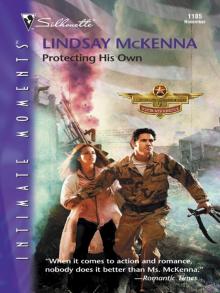 Protecting His Own
Protecting His Own On Wings of Passion
On Wings of Passion Risk Taker
Risk Taker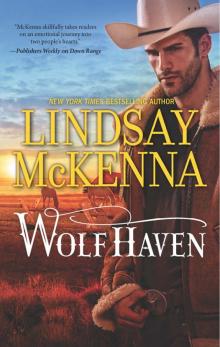 Wolf Haven
Wolf Haven Wilderness Passion
Wilderness Passion Come Gentle the Dawn
Come Gentle the Dawn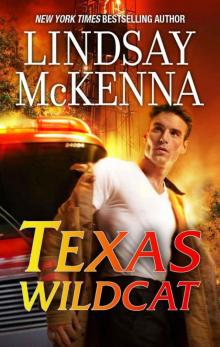 Texas Wildcat
Texas Wildcat Touch the Heavens
Touch the Heavens The Loner
The Loner Never Surrender
Never Surrender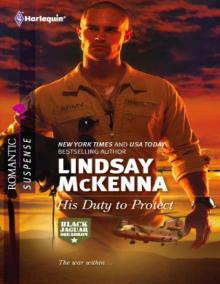 His Duty to Protect
His Duty to Protect Untamed Desire
Untamed Desire The Wrangler
The Wrangler When Tomorrow Comes
When Tomorrow Comes Heart of the Storm
Heart of the Storm Deadly Identity
Deadly Identity Dog Tags for Christmas
Dog Tags for Christmas Seeing Is Believing
Seeing Is Believing Nowhere to Hide (Delos Series Book 1)
Nowhere to Hide (Delos Series Book 1) Woman of Innocence
Woman of Innocence Trapped (Delos Series Book 7)
Trapped (Delos Series Book 7)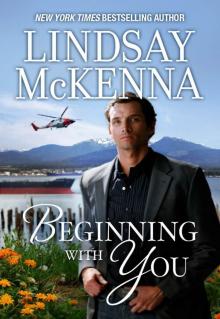 Beginning with You
Beginning with You The Rogue
The Rogue Dream of Me: Delos Series 4B1
Dream of Me: Delos Series 4B1 Too Near the Fire
Too Near the Fire The Christmas Wild Bunch
The Christmas Wild Bunch Never Enough: Delos Series, 3B1
Never Enough: Delos Series, 3B1 Degree of Risk
Degree of Risk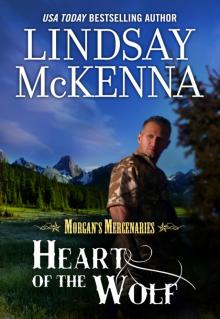 Heart of the Wolf
Heart of the Wolf Forged in Fire (Delos Series Book 3)
Forged in Fire (Delos Series Book 3)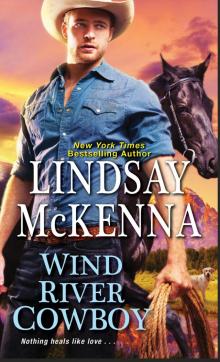 Wind River Cowboy
Wind River Cowboy Wind River Lawman
Wind River Lawman Hangar 13
Hangar 13 The Adversary
The Adversary Night Hawk
Night Hawk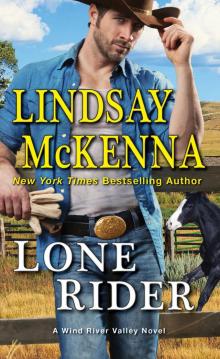 Lone Rider
Lone Rider Silent Witness
Silent Witness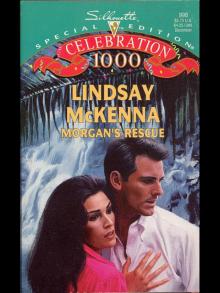 Morgan's Rescue
Morgan's Rescue Time Raiders: The Seeker
Time Raiders: The Seeker Love Me Before Dawn
Love Me Before Dawn Point of Departure
Point of Departure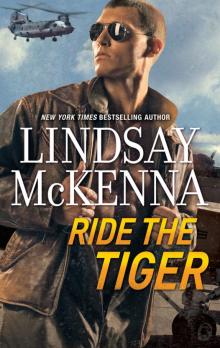 Ride the Tiger
Ride the Tiger Beyond Valor
Beyond Valor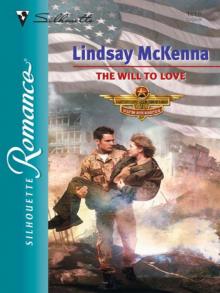 The Will to Love
The Will to Love To Love and Protect
To Love and Protect